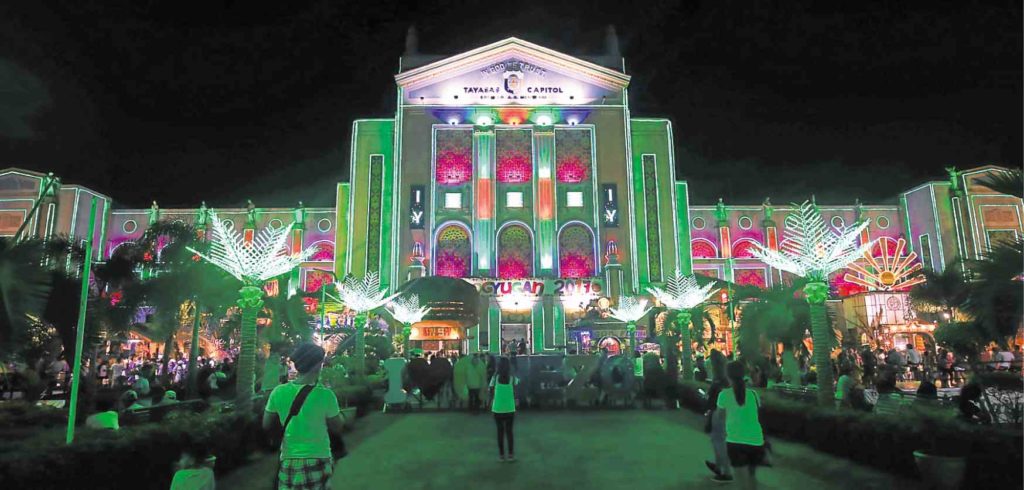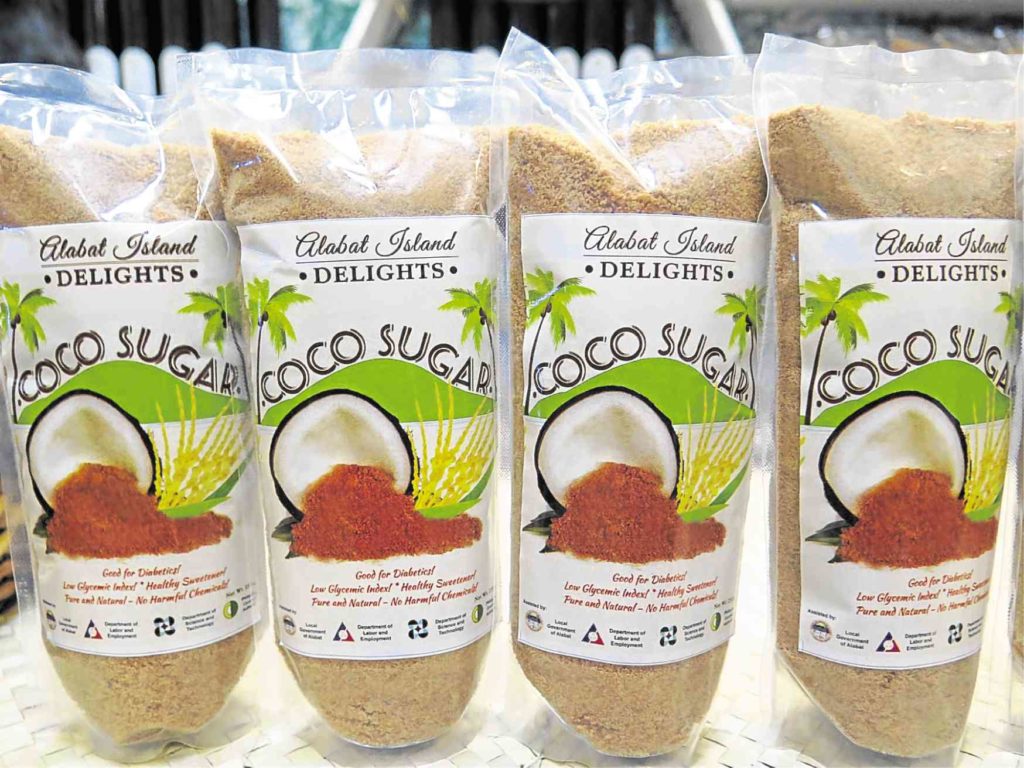Quezon festival offers lifeline to coconut farmers
LUCENA CITY—Faced with the uncertainty of the future of the country’s coconut industry, farmers and local officials in Quezon province have joined hands to develop other products from the “tree of life” to sustain the economy of coconut-growing communities.
“As we exert efforts to revitalize and diversify the local coconut industry, we’re also helping our farmers shift their focus away from just producing copra to learning alternative livelihoods by making coconut byproducts and other [items] for the local and international markets,” Gov. David Suarez said.
New products often lose out to competition from established brands. But local farmers and entrepreneurs have found an ally in former Quezon Rep. Aleta Suarez, who conceptualized the annual Niyogyugan Festival in 2012, to overcome the challenge of penetrating the local market.
Suarez said the 10-day festival not only highlighted the province’s coconut industry but also provided the venue for farmers to showcase their products. This year’s festival ended on Aug. 27.
“The festival is really for the coconut farmers,” said the former lawmaker, the governor’s mother.
This year’s festival, participated in by the province’s 39 towns and two cities, featured booths in front of the provincial capitol building and Perez Park.
Among the products offered was coconut sugar.
Joy Suapero, Alabat town agricultural technician, said after a demonstration on how to make coconut sugar during last year’s festival, buyers and dealers continued to seek them.
“Some of our partners have started exporting coconut sugar,” she said.
According to Suapero, the festival served as a marketing avenue to promote coconut sugar, which retails at P60 per 250 grams and deemed ideal for diabetics.
Suapero said Alabat had 13 coconut sugar producers.
“The business venture greatly helps our coconut farmers. They no longer depend on the traditional copra for a living,” she said.
Catanauan town’s “uraro” cookies, made from arrowroot, have been attracting markets here and abroad.
“Thanks to Niyogyugan, our homemade cookies have become a successful alternative livelihood product for coconut farmers,” said Minerva Coronacion, municipal agriculturist.
The arrowroot plantation in Catanauan, which started at only 10 hectares, has spread out to more than 200 hectares of coconut farmlands.
“It is expanding. It’s a new venture for coconut farmers,” Coronacion said.
Eda Mendoza, Infanta municipal agriculturist, said the town’s farmers sold 8,858 bundles (25 pieces in a bundle) of the native “suman” (glutinous rice cakes wrapped in banana leaves) last year. A bundle sells at P85 each.
“It was selling fast because of the word of mouth from among our satisfied customers,” she said.
According to Mendoza, buyers from Metro Manila and other neighboring provinces have been coming to Infanta to purchase rice cakes in bulk.
The booths around the capitol complex sold various products like “tinapa” (smoked fish), honey, herbal tea, fresh seafood and dried fish, “longganisa” (pork sausage), native bags, hats and home decor using seashells.
Aside from the famous longganisa, another bestseller in the booth of Lucban town was its dried noodles known as “Pansit Lucban.”
Cooked noodles were sold at P10 per order.
Sprinkled with vinegar laced with chilli, the noodles are eaten “habhab” style (slurping from banana leaves).
Some 300 kilograms of cooked noodles were sold daily during the weeklong festival.
“Our efforts to help farmers don’t end by just providing them with alternative sources of income,” said Roberto Gajo, head of the provincial agriculture office.
Gajo said the provincial government and the Philippine Coconut Authority were also engaged in massive coconut replanting program with the introduction of high-yielding varieties to revive the coconut industry.
The provincial government also aimed to boost the production of other coconut byproducts like virgin coconut oil, coconut water, coconut coir and coconut-based vodka (lambanog).
Alberto Bay Jr., provincial tourism officer, said the festival was among the events promoted by the Department of Tourism.
Governor Suarez attributed the success of the festival to the “inspiring spirit of competitiveness” among local governments.
“It brings out the best in them—their artistry, creativity, talent, industry and our common inherent passion to serve the best interest of our people,” he said.


